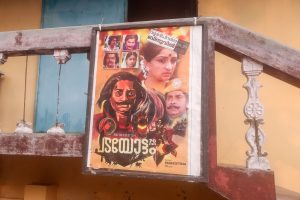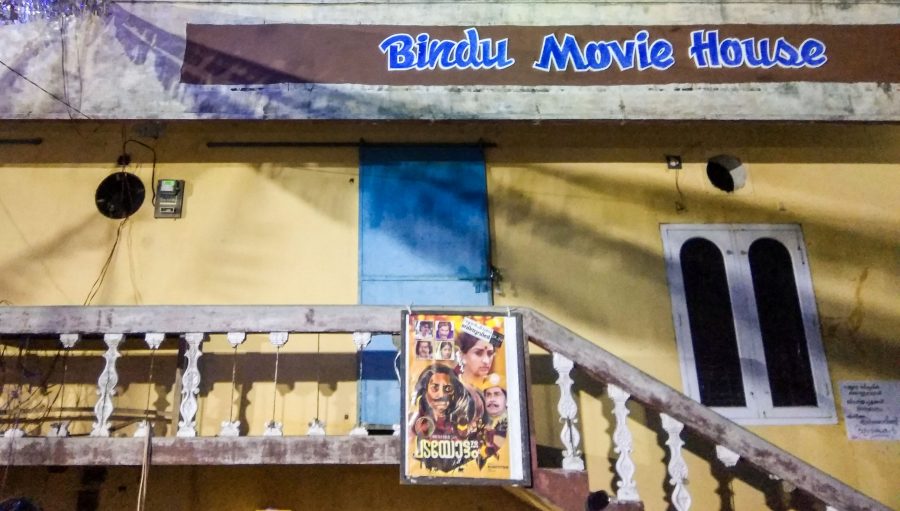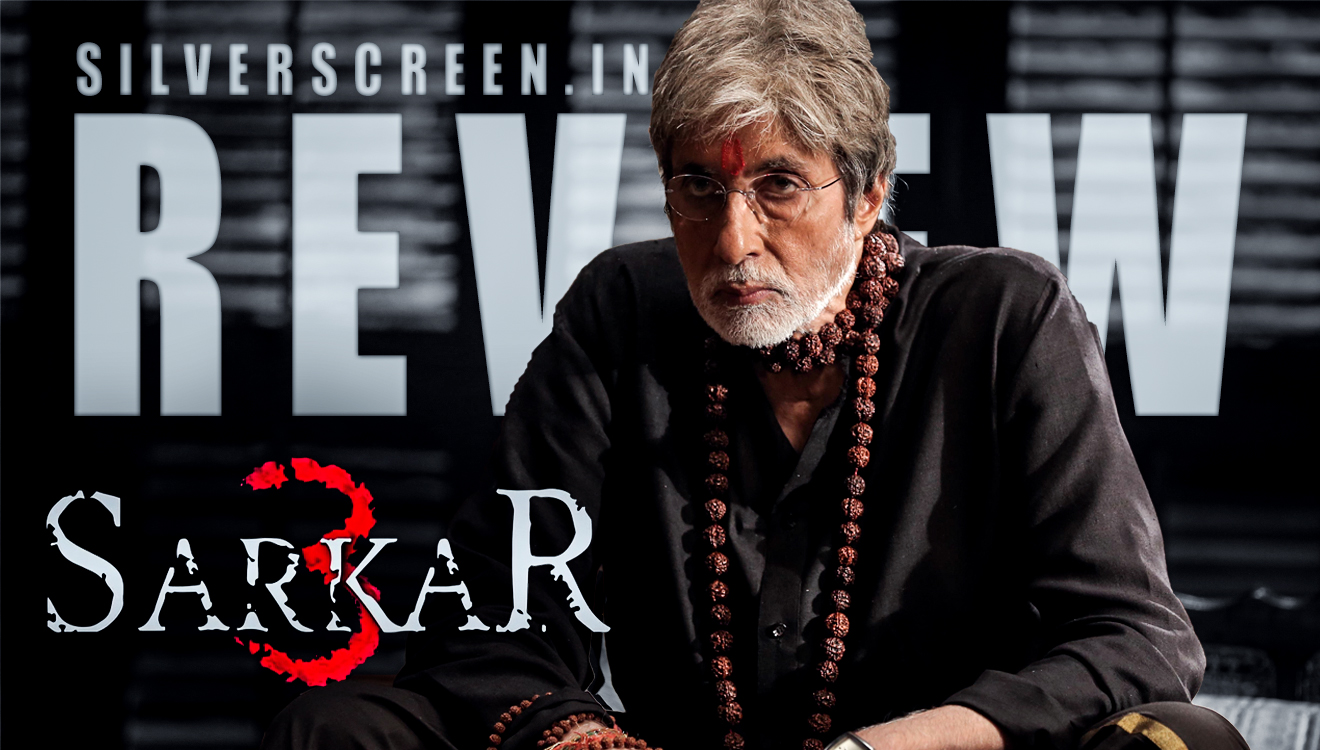Before Bindu Movie House shut down in 2000, it was an integral part of Valayanchirangara’s lifestyle – a favourite haunt of residents. Eighteen years later, the theatre has now been revived, its premises scrubbed clean to host a film festival; there are no traces of the fertilizer depot that the hall had once been when it fell on bad times.
Around 10 kilometers off Perumbavoor town in Kerala, an erstwhile single-screen theater, which had closed down operations nearly two decades ago, suddenly brims with life. The wild undergrowth of shrubs that had occupied the premises have been cleared, cobweb and dust swept aside, and the outer-walls have received a fresh coat of paint. There’s a carnival-like atmosphere; the air bubbles with the nutty fragrance of roasted peanuts, banana fritters and tapioca biryani. A group of men stand at the gate chatting amiably, welcoming guests as they arrive. From a corner, two giant speakers blare popular Malayalam film songs from the black and white era. Seen on a hoarding in front of the compound, is a brand new poster of the classic epic drama Padayottam (1982). There are posters displayed at the nearby junction too, soliciting visitors.

The theatre has begun screening movies again, thanks a local film club which had readied the hall for a three-day film festival that began on March 28, with a special screening of Padayottam.
Bindu Movie House in Valayanchirangara was an essential part of the village’s lifestyle once upon a time. The locals have warm memories of watching many super-hit movies like My Dear Kuttichathan here. “I watched Chamayam (1993) at this theatre with my whole family. It used to be a nice cozy little place,” recalls Hari, an artist who lives in the neighborhood.
Look closer, and you would find signs of an era gone by all over this building. The projector room with a tiny door is still intact. The upper walls of the hall are made of braided palm leaves that have started to wear off. Hari points at some faded writing on the wooden door of the hall, which says ‘Class A Rs 13′, the most expensive seating when the shutters went down for good in 2000. “B Class tickets would cost Rs 8.50. Movie watching was a different experience back then,” he says.
CN Sudhakaran, a businessman, opened the cinema hall in February 1980 with a screening of Edavazhiyile Poocha Minda Poocha, a movie written by MT Vasudevan Nair and directed by Hariharan. During the mid-90s, when revenue began to dwindle, Sudhakaran hung up his boots. After that, he used it as a fertilizer depot. For the last few years, the building and the compound have been lying idle, until Insight Film Club, a subsidiary of Valayanchirangara’s illustrious VNKP Library, approached him with this novel idea.
*****
“We are very excited. For our generation, this is a walk down memory lane,” says Ajayakumar, secretary of the Library Association, and also a teacher of mathematics at a local government high school. “Insight Film Club usually conducts screenings in the library auditorium for a small gathering. This year, we decided to do something bigger, inspired by the success of a community drama event the library organised in 2017.”
Founded in 1944, VNKP Library is one of the oldest grameena vayanasala (rural library) in Kerala. It’s a thriving adda that hosts myriad cultural events, adding spirit and character to an otherwise insipid suburban life. In 2017, around 200 locals came together under the leadership of Eldhose Yohannan, an amateur dramatist, for a play. Mannu [Soil] was staged on a vacant farm land by the side of a lake. The set was constructed by residents who had no prior experience in theater, and many of the actors were first-timers. “The community endeavor brought the people closer together, and when we were floating ideas for this year’s film festival, someone suggested that we reopen Bindu Cinemas and recreate the olden days,” says Ajayakumar.
The MNREGA workers from the Panchayat helped clean the compound, and the library members painted the outer walls, cleaned the interiors, prepared the screen, and arranged chairs. “We didn’t want to screen a recent movie or a black and white film. Padayottam, the greatest hit in Malayalam cinema when it was transitioning from monochrome to colour, fit our preferences. It is an important film in the history of Malayalam cinema, and when it released, Bindu ran housefull shows for over two weeks,” Ajayakumar declares.
Lights off
Recommended
All former employees of the theater have been duly invited for the screening, and among the few who manage to turn up are Viswanathan, who worked as a part-time manager of the cinema hall, and Sathyan, the projector operator. When Bindu shut down, Viswanathan focused on his full-time job at the village office, while Sathyan got himself a job at a temple. Some of their colleagues found jobs at bars and hotels. The men, now in their late 50s, join the audience to watch Padayottam.
A few minutes into the film, as a true testament to the era gone by, there’s a power-cut. The audience begin to howl and whistle, and an old man murmurs, “I remember the note that would flash on screen back then: that there will be no refund in case of a power-cut.”
The Insight Film Club Film Festival screens documentaries – Queen of Katwe, Kanyaka Talkies, Life and Films of KG George – today, while a selection of 16 short films chosen from a pool of entries received from all over Kerala, will be screened tomorrow.
*****



